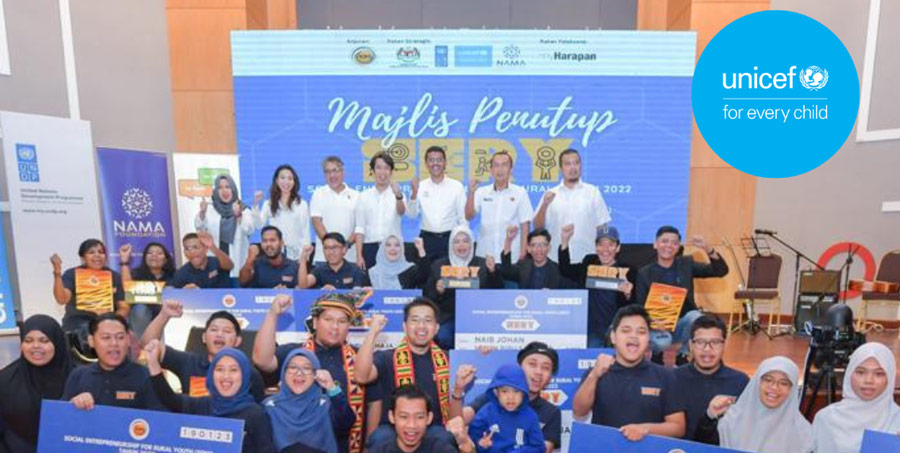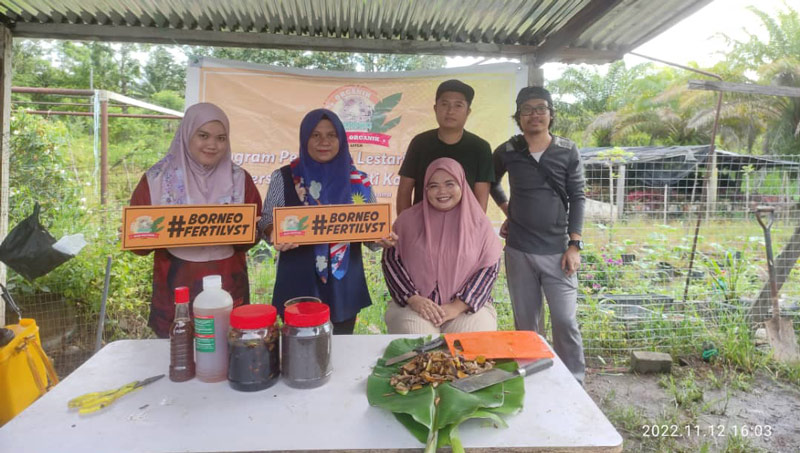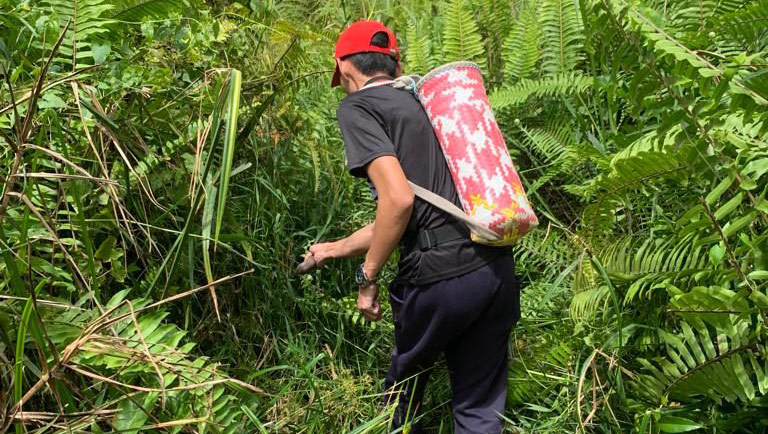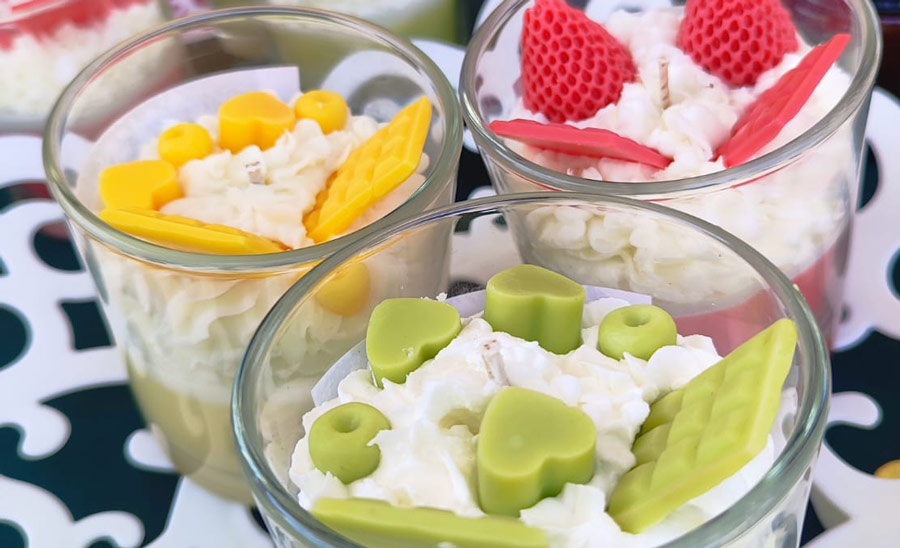Social Entrepreneurship for Rural Youth (SERY)

The 2022 Social Entrepreneur for Rural Youth (SERY) project in Malaysia was led by the Ministry of Youth and Sports, in partnership with the Youth Environment Living Labs (YELL), NAMA Foundation, and the Ministry of Rural and Regional Development. The project was executed by MyHarapan.
SERY 2022 aimed to promote social entrepreneurship among young people aged 18 to 30, particularly in rural areas. It aims to empower them to address community challenges through social businesses, fostering resilience and creating a sustainable workforce.
The programme includes a Social Business Bootcamp that refined and validated their ideas, enabling direct, positive impacts on their communities. SERY believes in the potential of young people to tackle social issues through entrepreneurship.
In 2022, with co-funding from YELL, 5 projects with environmental themes went through a 5-month implementation period
1. Borneo Fertilyst
The project focused on repurposing discarded banana peels from local pisang goreng vendors into natural and organic fertilisers. It has successfully produced two types of organic fertilisers: Biomircobella and Bokashi Bella Tech. The project operates in Kg Rasak Laut, Kota Marudu, contributing to sustainable agriculture waste management.
Through our participation in the SERY program, we’ve reminded our community, including agribusiness farmers, of their responsibility to care for the environment.
Through our participation in the SERY program, we’ve reminded our community, including agribusiness farmers, of their responsibility to care for the environment.

Key Accomplishments
Business Development
- Successfully marketed the first Organic Bio Microbella Fertilizer and Bokashi Bella Tech Fertilizer.
- Established a dedicated workshop centre in Kg Rasak Laut, Kota Marudu, to promote environmental awareness and provide training to the community.
Environmental Impact
- Raised awareness among the local community, especially agribusiness owners and rural residents, about their responsibility to protect the environment.
- Collection of 900 kg of banana peel waste, contributing positively to the environment and reducing the burden of waste disposal.
- Initiated the Mini Organic Garden project, focusing on using organic fertiliser from Borneo Fertilyst.
- Successfully collected and converted 2 tons of banana peels into fertiliser.
Social Impact
- Provided employment opportunities for the B40 group through part-time jobs in waste collection and organic fertiliser production.
- Educated the community about the potential value of agricultural waste as environmentally friendly products.
- Stimulated environmental innovation among youth by developing commercially viable agricultural products. Notably, the successful implementation of bamboo hydroponic innovation, which received the Bronze award at the Sabah State level.
- Conducted school environmental programs to promote the 3R concept and introduce suitable agricultural practices. Notably, they organised programs at SK Nanamun in 2023 and planned programs in 2024 for 6 schools in Kota Kinabalu, Kota Belud, and Kota Marudu.
- Initiated organic corn and vegetable community garden programs to instill environmental consciousness and promote mental and emotional well-being.
2. D’Banana Craft
This project’s goal is to address the issue of plantations disposing of banana waste improperly, such as into drains or through burning. It focuses on transforming banana waste into valuable products like paper, boxes, and handicrafts. To achieve this, the project collects and purchases agricultural waste, primarily banana stems, from the community in Tuaran, potentially producing paper from more sustainable sources of raw material.
Paper-making process from banana waste
Key Accomplishments
Business Development
Business Development
- Produced prototypes of various paper products including handicrafts and paper-based packaging.
- Obtained a licence to purchase sodium for enhancing their paper products, eliminating the need to buy sodium from the Universiti Malaysia Sabah.
Environmental Impact
- The project experiments with banana plant waste, turning it into an alternative resource for paper production, thereby reducing the amount of agricultural waste disposed of in rivers or burned openly.
- Successfully processed 40 whole banana plants, each weighing 10 to 15 kilograms.
Social Impact
- Conducted workshops at local polytechnics to provide technical training to local youths.
- Trained individuals were given commissions upon completion, providing them with extra income.
- Successfully collaborated with a new entrepreneurs’ cooperative, participating in their Annual General Meeting and collaborating on their project.
3. Maestro
The project involves collecting domestic food waste and converting it into fertiliser and compost products. It was initiated in response to a survey conducted in Mentakab, which revealed that 65% of the community was unaware of alternative kitchen waste disposal methods.

To address this lack of awareness and the need for beginner-friendly fertilisers, the project developed a coin-shaped, controlled-release fertiliser. This project bridges the gap between food waste management and the demand for organic fertiliser in the community. It aims to collect kitchen waste and transform it into pelletized compost fertiliser while educating the public about waste reduction and its environmental solutions.
Key Accomplishments
Business Development
- Developing and marketing four G2G (Garbage to Green) products derived from compost pellets, creating economic opportunities and promoting sustainable alternatives to chemical fertilisers.
- Initiating partnerships with local cafes and restaurants to collect coffee bean waste for composting, expanding waste collection sources and potential product sales channels.
Environmental Impact
- The team collected 31kg of kitchen waste from 15 households in Mentakab and converted it into compost pellets, reducing the amount of organic waste sent to landfills.
- Educating 20 local residents on composting techniques, promoting organic gardening practices and reducing reliance on chemical fertilisers.
Social Impact
- Engaging with various government agencies and local communities to garner support for the project, fostering collaboration and community involvement.
- Providing technical training through workshops to local youths, empowering them with skills for sustainable waste management and potential income generation.
4. Perimba
In Sibu, Sarawak, these three brothers initiated a project to safeguard their ancestral land from illegal logging. They are transforming a section of the forest into a camping site to deter illegal encroachment. The project’s core objective is establishing community-based tourism and protecting community forests from illegal logging and land clearance. It provides a camping site to prevent unauthorised logging activities in the forest.

Key Accomplishments
Business Development
- Generated revenue of RM985 from five different camping packages offered over three months, demonstrating the economic viability of eco-tourism initiatives.
- Offered educational experiences to campers about forest conservation and sustainable practices, potentially attracting more visitors and expanding the business.
Environmental Impact
- Established a campsite in Sibu to promote eco-tourism, potentially deterring illegal logging activities in the surrounding rural areas.
- Hosted 20 camping bookings over three months, contributing to forest conservation efforts and raising awareness about the importance of preserving natural habitats.
Social Impact
- Fostered teamwork and cooperation through campsite cleaning activities, promoting a sense of community involvement and responsibility.
- Engaged with local communities through promotional activities, providing safety tips, and forming new friendships among like-minded individuals.
5. Therapy Lab
The project involves collecting and processing used cooking oil into scented candle products. This project wants to address the improper disposal of used cooking oil, often directly into Sungai Kedah. The collected cooking oil is upcycled into scented candles of various sizes, with a focus on circular economy.

These candles are designed to appeal to candle enthusiasts, providing options for special occasions, convocations, and corporate gifts. The initiative also supports students from economically disadvantaged backgrounds by providing them an opportunity to earn a side income.
Key Accomplishments
Business Development
- Developed and marketed three different types of scented candles to cater to various market segments, including decorative candles for special occasions, limited edition candles for events, and aromatherapy candles for corporate gifts.
- Produced a total of 180 scented candles and sold 160 units.
- Generated revenue through candle sales, with a total sales value of approximately RM6500, resulting in a net profit of around RM3000.
Environmental Impact
- Successfully collected a total of 60 litres of used cooking oil from local businesses and residential areas as of December 2022.
- Converted the collected used cooking oil into scented candles, thereby recycling a waste product and reducing environmental pollution.
Social Impact
- Engaged students from B40 families in the candle-making process, providing them with practical skills and income opportunities.
- Conducted workshops to teach candle-making techniques, providing valuable skills to participants and empowering them to generate income through candle production.
- Raised awareness about the importance of proper disposal of cooking oil and encouraged community participation in waste management efforts.
We use cookies and other identifiers to help improve your online
experience. By using our
website you agree to this.
To learn more, including how to change your settings, see our Cookies Policy.
To learn more, including how to change your settings, see our Cookies Policy.
